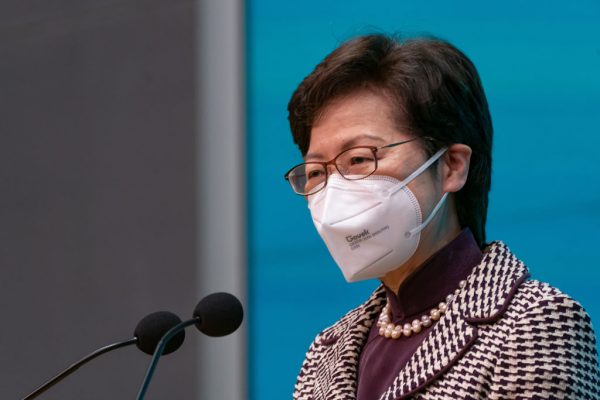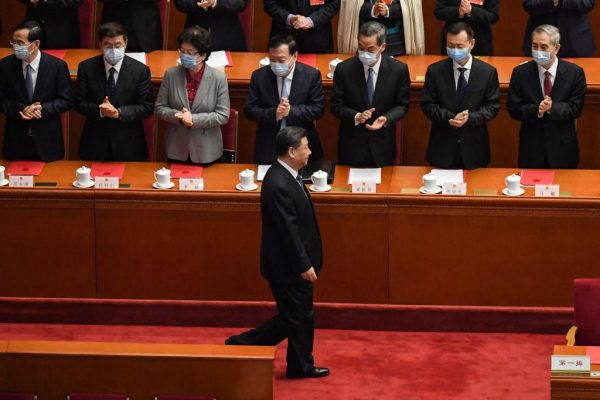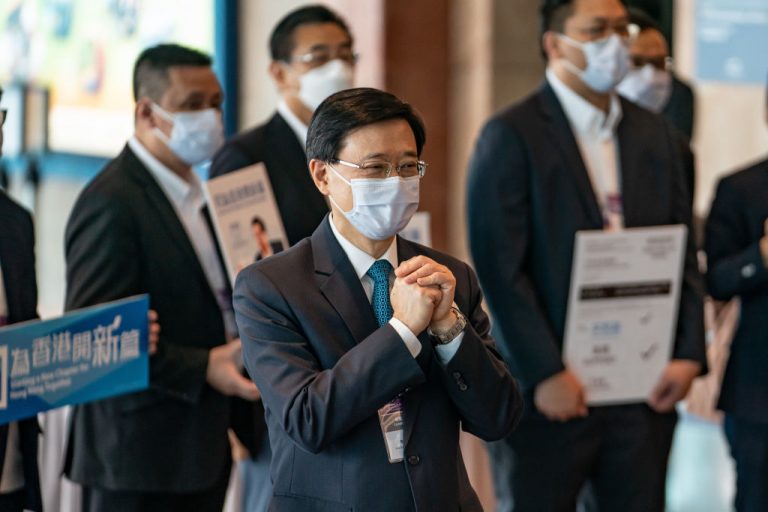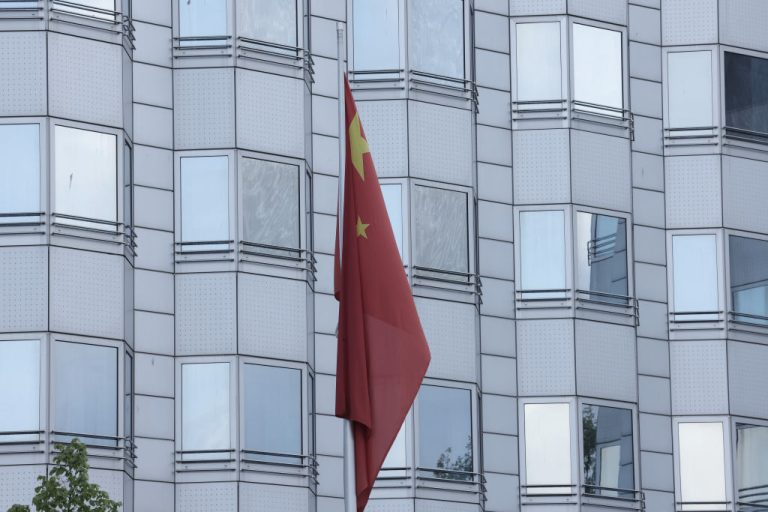John Lee Ka-chiu, Hong Kong’s former Security Security and a career policeman, has been selected to replace the city’s outgoing Chief Executive Carrie Lam.
Lee, 64, was the sole candidate and received 99 percent of the votes from Hong Kong’s 1,461-member Election Committee, a body of representatives who are vetted or picked by the mainland Chinese regime.
This year’s decision, which the Hong Kong government billed as “open and honest,” contrasts with previous elections, where there was at least the appearance of competition despite all candidates being approved by Beijing.
Carrie Lam, who gained widespread infamy for her role in crushing the 2019-2020 democracy movement in Hong Kong, had opted to step down at the end of her first five-year term, rather than seek a second term.

READ MORE:
- Chinese State-linked Newspaper Brands Hong Kong Journalist Association as ‘Anti-China,’ Calls for Its Disbandment
- Hong Kong to Appoint New Leader in May After Carrie Lam Announces Her Departure
- Why Hong Kongers Are So Desperate to Stop the Mainland Extradition Law
Lee, who was security secretary, and before that, Hong Kong’s police chief, oversaw the force’s often violent actions against the demonstrators during the protests. He will take over from Lam at the end of her term in late June.
His ascension to the post comes as the Chinese Communist Party (CCP) cements its authoritarian rule over the former British colony, essentially scrapping the “one country, two systems” under which Hong Kong enjoyed political freedoms that are repressed in mainland China.
In the eyes of the public, Lee is associated with the National Security Law, which was imposed on Hong Kong by the People’s Republic of China (PRC) government in June 2020. Following the law’s implementation, Lee oversaw the arrests of dozens of activists and raids against Hong Kong’s pro-democracy media outlets.
Success
You are now signed up for our newsletter
Success
Check your email to complete sign up
In addition to strengthening the Chinese regime’s hold on Hong Kong, Lee’s appointment also boosts the direct authority of Chinese leader Xi Jinping in the city, as opposed to intermediaries linked to his political rivals.
The face of ‘national security’
Favored as a long-time replacement for Lam, Lee was Hong Kong’s former Chief Secretary since 2010 and held the city’s post as deputy commissioner.
Lee first joined the city’s police force as a 19-year-old recruit in 1977, when the city — then a British colony — underwent an economic transformation into a modern financial center renowned across the world for its robust press, flourishing civil society and democratic aspirations.
In 2020, Lee backed the NSL, which criminalizes most forms of political protest and dissent and threatens violators with sentences ranging from fines to life imprisonment. Since the NSL was enacted in June 2020, more than 160 activists have been arrested — including activists and journalists from various pro-democracy outlets.
Under the NSL, Lee oversaw the mass arrest of many opposition figures in 2021, accusing them of trying to “paralyze the Hong Kong government,” by organizing a pro-democracy primary election. A year later, Lee ordered a police raid on Hong Kong’s biggest pro-democracy newspaper, Apple Daily, which was subsequently forced to shut down after its assets were frozen and several of its staff members arrested.
A week after that raid took place, Lee was promoted to Chief Secretary — the second-highest position in government — and the first time a security official has taken the role.
Lee has maintained that the NSL will help restore “stability from chaos,” and has already indicated that after taking up office, he would introduce further security legislation and establish stricter laws against the spread of “fake news” in Hong Kong.
Xi establishes control
The CCP labels all political opposition in Hong Kong as a threat to national security. The 2019-2020 movement — which saw multiple protests with millions of people — was primarily aimed at scrapping a controversial extradition law and enacting democratic reforms in the city. However, Chinese state propaganda presented the protesters as being in favor of Hong Kong independence and rejecting China’s sovereignty over the city.
Nathan Law, a prominent Hong Kong human rights activist and former local lawmaker now living in exile in the U.K., told CNN that it seems “very obvious” why John Lee has been tipped for the role.
“It really signals that [authorities] are intensifying that heavy-handed approach to Hong Kong, and putting the so-called national security as their policy for governing the city,” Law said.

According to an annual report compiled by Reporters Without Borders (RSF), on press freedoms around the world, Hong Kong now ranks 148th out of 180 countries measured, placing it between the Philippines and Turkey.
A higher score indicates less press freedoms, and in 2021, Hong Kong ranked in 80th place, illustrating a severe plunge in rankings in just one year. By comparison, the PRC ranked 175th and North Korea ranked the lowest at 180.
Meanwhile, the uncontested appointment of John Lee as Chief Executive has implications for Xi’s personal power over Hong Kong.
SinoInsider, a New York-based political risk consultancy, noted in an April 7 analysis that “being a career police officer, Lee does not appear to be as deeply connected to business sector and government bureaucracy networks as previous chief executives.”
Prior leaders of Hong Kong chosen by the Election Committee included two civil servants and two business professionals.
By contrast, Lee’s background makes him a perfect fit given Xi Jinping’s political priorities in recent years and the increasing “securitization” of Hong Kong that began around the time of the NSL’s passage, SinoInsider noted.
Moreover, putting a security official into leadership helps undercut the influence of Xi’s political rival, former CCP leader Jiang Zemin.
Hong Kong civil and business elites and their networks, according to the SinoInsider analysis from April, have “been long influenced by the Jiang faction and other Party interest groups that have enriched and entrenched themselves in Hong Kong since the handover” from Britain in 1997.







